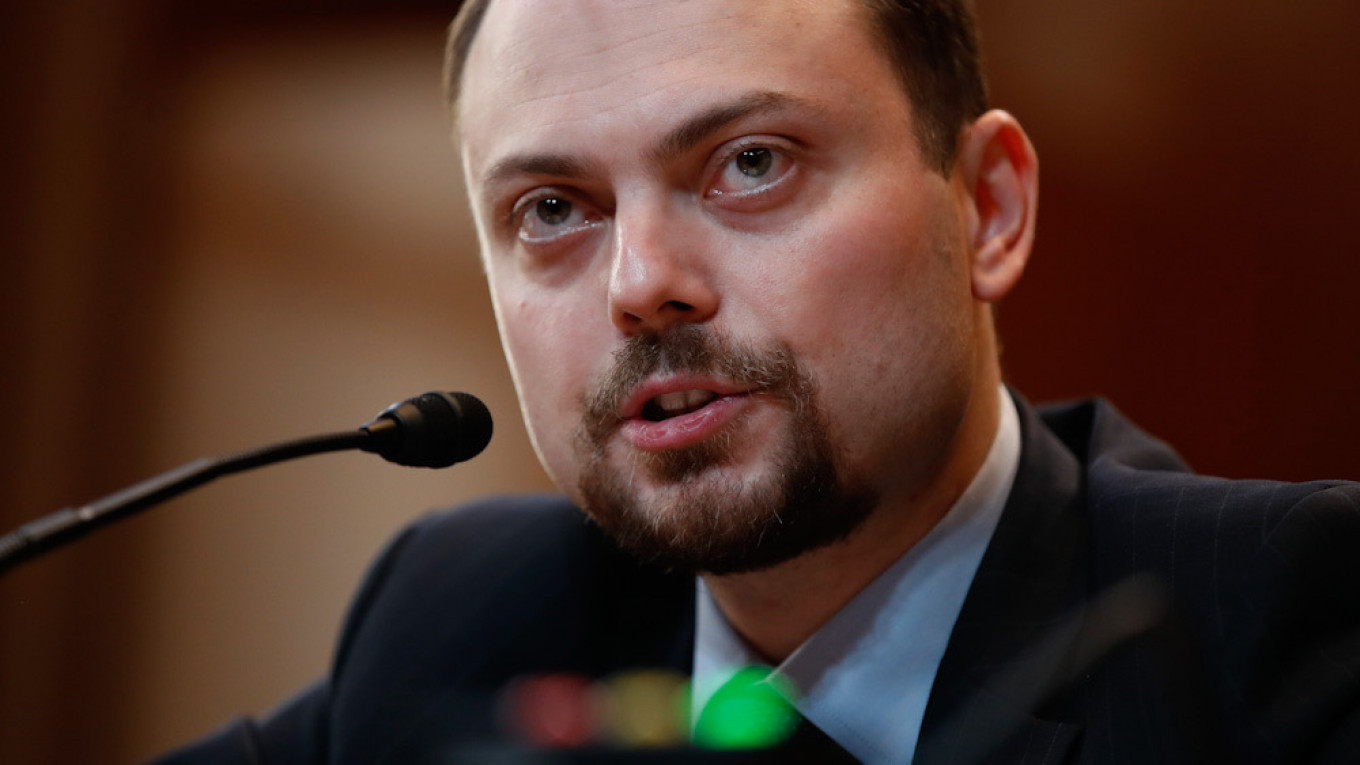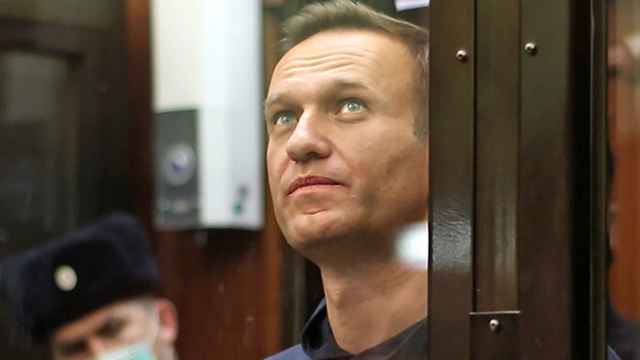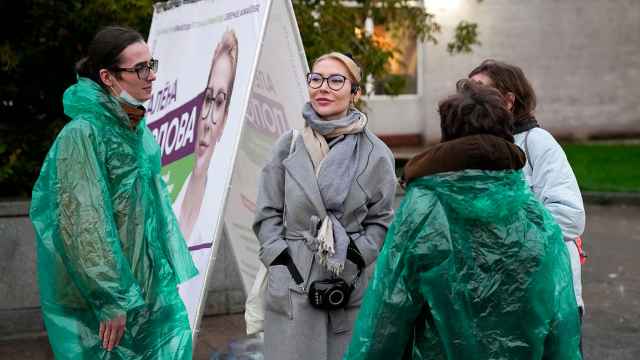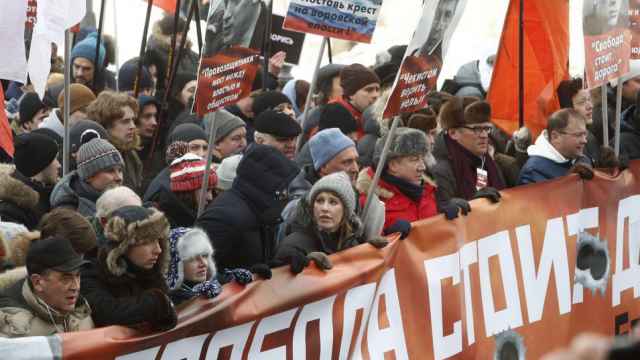Vladimir Kara-Murza, a prominent Kremlin critic who survived two suspected poisonings, was likely tailed by the same chemical weapons squad that allegedly poisoned Alexei Navalny, the Bellingcat investigative outlet reported in a joint investigation with The Insider and Der Spiegel.
Bellingcat analyzed travel data which showed that in both cases, in 2015 and 2017, Kara-Murza was followed on trips to various cities in Russia by the same members of the FSB operative team Bellingcat says poisoned Navalny and three other opposition figures.
Kara-Murza worked as an aide to Kremlin critic and politician Boris Nemtsov, who was shot dead in 2015 on a bridge near Moscow’s Red Square.
Bellingcat said the earliest tailing of Kara-Murza by the FSB’s alleged poisoning unit that its investigation found was just three days before Nemtsov’s assassination.
That same year, Kara-Murza was poisoned for the first time after coming back from a trip to Kazan, during which he was tailed by the FSB squad, according to Bellingcat.
“The same team would continue tailing him until he was poisoned for the second time on Feb. 1, 2017,” the report said.
Two Russian hospital reports and three international examinations have failed to establish what caused Kara-Murza to fall into a coma.
Kara-Murza is now based in Washington DC where he continues his opposition efforts and works with U.S. lobbyists.
A Message from The Moscow Times:
Dear readers,
We are facing unprecedented challenges. Russia's Prosecutor General's Office has designated The Moscow Times as an "undesirable" organization, criminalizing our work and putting our staff at risk of prosecution. This follows our earlier unjust labeling as a "foreign agent."
These actions are direct attempts to silence independent journalism in Russia. The authorities claim our work "discredits the decisions of the Russian leadership." We see things differently: we strive to provide accurate, unbiased reporting on Russia.
We, the journalists of The Moscow Times, refuse to be silenced. But to continue our work, we need your help.
Your support, no matter how small, makes a world of difference. If you can, please support us monthly starting from just $2. It's quick to set up, and every contribution makes a significant impact.
By supporting The Moscow Times, you're defending open, independent journalism in the face of repression. Thank you for standing with us.
Remind me later.






